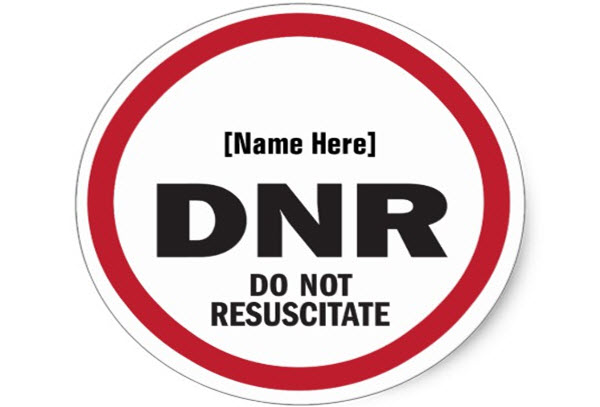Why I changed my mind on euthanasia
 NewsRoom 27 May 2019
NewsRoom 27 May 2019
Family First Comment: “The turning point for me came about a month ago. I saw the report of a meeting hosted by disabled people’s organisation, People First (a group run by and for people with learning/intellectual disabilities) in the Central North Island. At that meeting, access to health care was discussed, as this is a key issue – particularly for people within this segment of the disability community – for whom find it difficult accessing care for many reasons, including attitudinal issues on the part of some medical professionals. This was exemplified by the stories shared at the meeting where some people – who had gone to hospital for treatment – had discovered upon reading their files that they had ‘no resuscitation’ orders attached to them. More problematically, these orders had not been requested by any of the disabled people or their families.”
www.protect.org.nz
Chris Ford explains why he’s now firmly in the ‘no’ camp on the voluntary euthanasia legislation
Last Wednesday, David Seymour’s End of Life Choice Bill (EOLC) was scheduled to come before Parliament for its second reading. However, thanks to some filibustering, it’s been delayed until the next Private Member’s Day when non-government bills are dealt with.
Whatever the reasons for the delay, it’s given opponents of the legislation more time to present good arguments to the public as to why the legislation needs to be defeated. This delay also presents me with a good opportunity to say I’ve changed my mind on it and am now firmly in the no camp.
I know that this will put me in the same column as Christian conservatives who also oppose the legislation for moral reasons. Personally, this makes me feel very uneasy given that I hold otherwise progressively social liberal views on issues such as abortion and reproductive rights, LGBTI rights, women’s issues and indigenous issues, etc. Yet, I want to outline from a socialist, progressive and disability rights perspective as to why I have swung my support to the anti-euthanasia camp.
The turning point for me came about a month ago. I saw the report of a meeting hosted by disabled people’s organisation, People First (a group run by and for people with learning/intellectual disabilities) in the Central North Island. At that meeting, access to health care was discussed, as this is a key issue – particularly for people within this segment of the disability community – for whom find it difficult accessing care for many reasons, including attitudinal issues on the part of some medical professionals. This was exemplified by the stories shared at the meeting where some people – who had gone to hospital for treatment – had discovered upon reading their files that they had ‘no resuscitation’ orders attached to them. More problematically, these orders had not been requested by any of the disabled people or their families.
Personally, this brought home to me one of the key arguments of the anti-euthanasia camp: that people who are already marginalised or devalued (such as older and disabled people) would be at high risk from euthanasia. The pro-euthanasia lobby would counter that people will have the right to exercise real legal choice and that the rights of vulnerable people would be better protected within the EOLC once it goes through the remaining stages of the parliamentary process. In stating this, I acknowledge that when the legislation returns that Seymour is preparing to remove the ‘irremediable conditions’ clause, which was one of my genuine concerns with it.
The way in which society views disabled people is still largely negative and any introduction of euthanasia laws might further diminish our standing in the eyes of wider New Zealand society.
Chris Ford is a Dunedin-based writer and researcher who focuses on disability, economic and social issues and proudly identifies as a disabled person.
READ MORE: https://www.newsroom.co.nz/2019/05/27/602948/why-i-changed-my-mind-on-euthanasia






